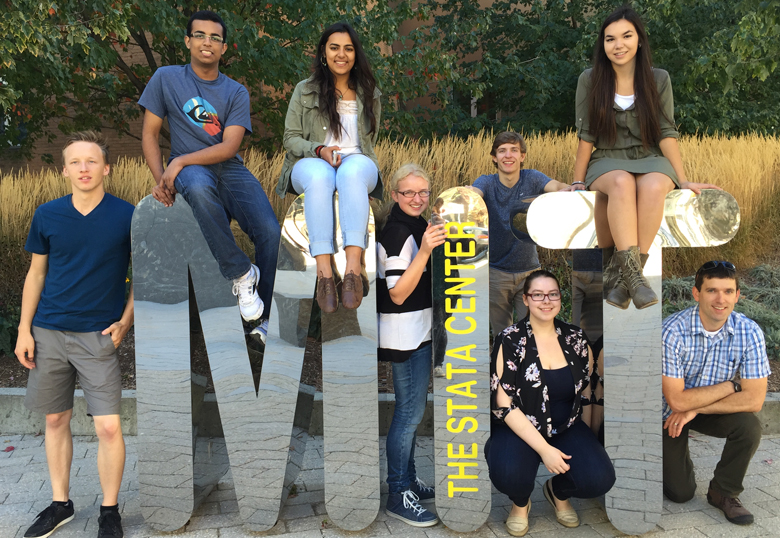The University of Lethbridge iGEM program has established itself as the premier program of its kind in the country, and by encouraging high school students to participate, has ensured its future sustainability.
For the past three years, the U of L has sponsored a high school iGEM team that has mirrored the success of its collegiate entry. Just recently, the high school team returned from iGEM 2015 Jamboree in Boston, Mass. having earned a bronze medal for the research project and presentations they developed while working in a U of L research laboratory.

More than the medals and recognition, the high school iGEM program at the U of L is creating a new generation of students who are excited about science and specifically the science of synthetic biology.
“Seeing the students at the high school level getting excited about synthetic biology is what iGEM is all about at the high school level,” says co-ordinator Dr. Brian Dempsey. “They get firsthand lab experiences and training in the lab and they also get to test out their own ideas. They are inspired, and we’re at the point now where students who have come through the high school level are now joining the collegiate team and mentoring students on the high school team.”
This year’s group tackled two projects, including one that focused on beekeeping and Colony Collapse Disorder and another that sought to find a solution to bacterial biofilms in a hospital setting.
“What’s great for them is that it is student run, so they are in total control over the project and they choose what they are passionate about,” says Dempsey.
The program involves all local high schools but with limited space and resources, can currently accommodate 16 students in any given year. The University did present a skills workshop in the spring that invited all interested high school iGEM teams and individuals and it proved to be extremely popular.
“We allowed high school teams from throughout Alberta to come in and learn the basic skills of how to do synthetic biology and some teams even brought their parts in and assembled them in our lab because they just don’t have the facility to do that in their school,” says Dr. Hans-Joachim Wieden, U of L chemistry and biochemistry researcher and iGEM supervisor at the collegiate level.
Dempsey adds that some of the groups they assisted eventually made their way to Boston for the world jamboree event in the fall.
“This year we saw four Alberta high school teams in Boston, and that’s unheard of. It says a lot for the future of synthetic biology research in our province.”
Aside from the indispensible support of the U of L, Alberta Innovates Technology Futures, through its GeekStarter program, provides financial support for programs such as high school iGEM, helping to create future innovators and entrepreneurs who will drive the economic diversification of our province.

